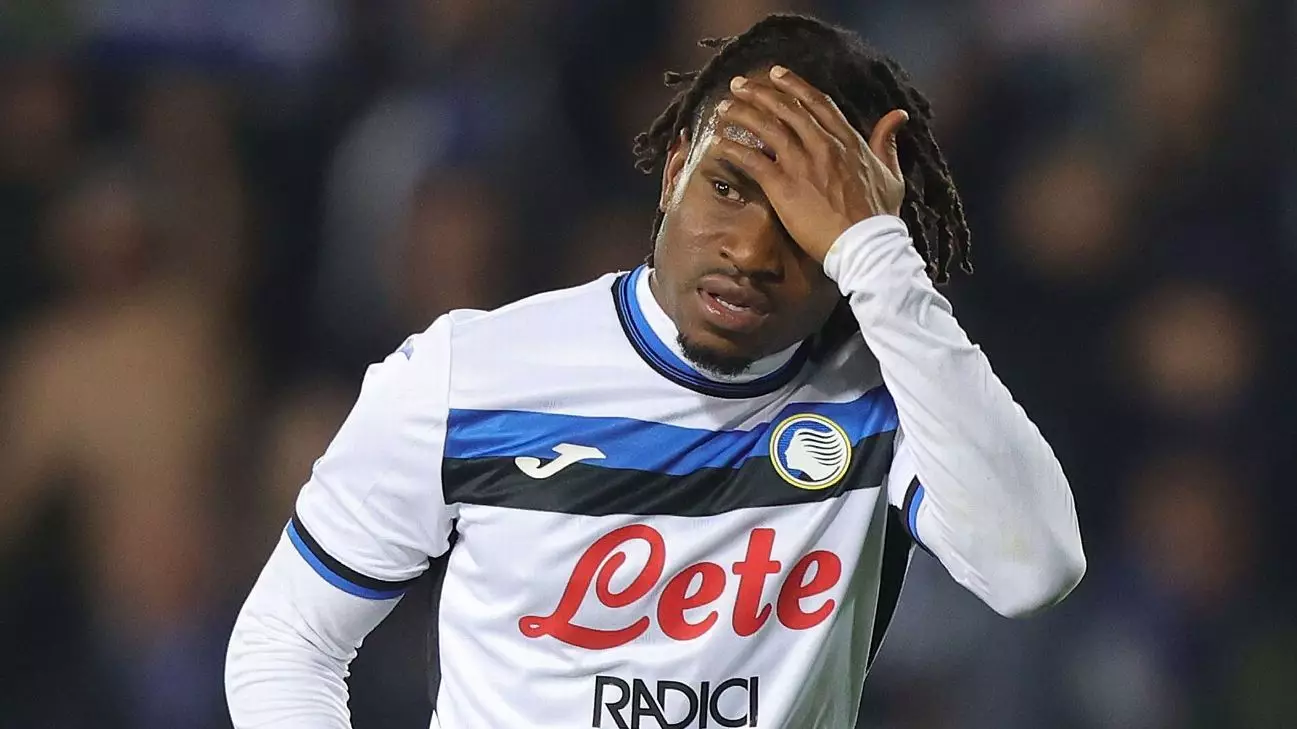The world of football transfers is an intricate tapestry of negotiations, player aspirations, and clubs grappling for competitive advantages. Recent reports have highlighted some intriguing player movements that not only impact the teams involved but also possess broader implications for the football economy. The names of players like Ademola Lookman and Florian Wirtz have become focal points of speculation, revealing underlying trends in player valuation and club strategies as the January transfer window approaches.
Atalanta’s Ademola Lookman has emerged as an attractive prospect for English clubs, particularly Manchester United and Newcastle United. Lookman’s potential departure follows a confrontation with manager Gian Piero Gasperini, which underscores the fragility of player-manager dynamics in professional football. Characterized by a sense of discontent after being publicly critiqued for his penalty-taking skills, Lookman may seek an exit that promises a more favorable environment.
Both Manchester United and Newcastle are reported to be actively scouting the 27-year-old, an interest that raises questions about the strategic directions of these clubs. For Manchester United, a club under significant scrutiny for its performances, acquiring Lookman could offer additional attacking options and perhaps, a sense of rejuvenation. Conversely, for Newcastle, a club with financial empowerment post-takeover, signing Lookman could symbolize its commitment to long-term success by investing in promising talents.
The implications of this pursuit extend beyond that of mere player acquisition; they reflect the shifting landscape of English football where complementary skill sets and versatility in players are increasingly prized. Lookman’s skills may align well with the evolving tactical frameworks of modern English football, seeking creativity and fluidity in attacking formations.
Another significant narrative worming its way through the transfer grapevine is that of Florian Wirtz, currently dazzling in the Bundesliga with Bayer Leverkusen. With interest swelling from clubs like Real Madrid, Liverpool, and Manchester City, Wirtz’s stock has never been higher. His impressive statistics—nine goals and ten assists in just 23 league games—are a testament to his burgeoning talent and point towards a promising future.
In a savvy move, Bayer Leverkusen is reportedly eyeing Manchester City’s James McAtee as a potential replacement for Wirtz. This duality highlights the proactive nature of football clubs in securing their future ambitions by identifying replacements even before it becomes necessary. For Wirtz, the allure of the Premier League will be hard to resist, especially with clubs of such stature keen on securing his services.
Understanding these shifts can provide insight into the dynamics of supply and demand in football’s transfer market. With younger players commanding higher valuation, clubs can no longer afford to be complacent. The stakes have never been higher, emphasizing that each transaction is a reflection of a club’s long-term vision intertwined with immediate performance goals.
The Goalkeeper Shuffle: A Change in Guard
As clubs shuffle their rosters, the goalkeeper position has emerged as another area where notable discussions are taking place. Manchester City’s interest in FC Porto’s Diogo Costa illustrates a trend that prioritizes goalkeeper reliability and prowess. City’s efforts to engage in discussions with Porto are indicative of a broader recognition that stability is essential, particularly if they are to challenge for titles consistently.
Costa’s growing reputation as Portugal’s first-choice goalkeeper suggests that the 25-year-old has transformed into a valuable commodity in the transfer market. With multiple clubs seeking change in their goalkeeping departments, the upcoming window may witness a flurry of activity among keepers aspiring for upward mobility in their careers.
The narratives unfolding in the transfer market are reflective of larger themes at play in contemporary football. For clubs like Manchester United and Newcastle, securing talents amidst intense competition is a critical part of their strategies for re-establishing dominance in domestic and European competitions. Likewise, the case of Wirtz and possible replacements such as McAtee illustrates a level of foresight that clubs must exercise to navigate today’s challenging landscape.
As fans watch these stories develop, it becomes clear that each transfer carries with it not just the weight of expectation but also the potential to redefine club identities. With the January transfer window looming, these dynamics will likely intensify, setting the stage for a season shaped by new ambitions and opportunities.
